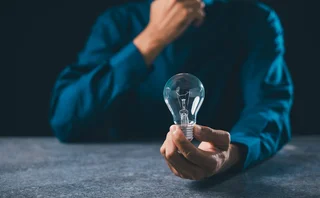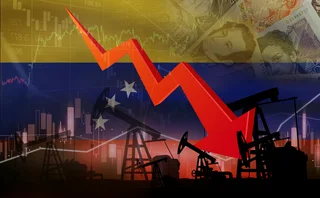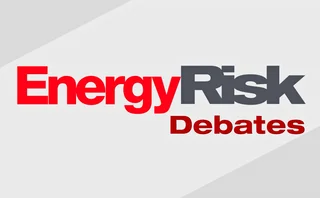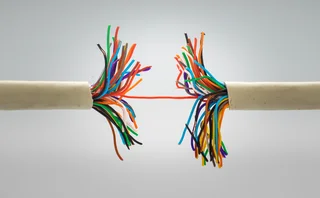Podcast: mental health and the role of the CRO
Energy company CRO discusses how her firm is dealing with workplace stress as lockdowns ease
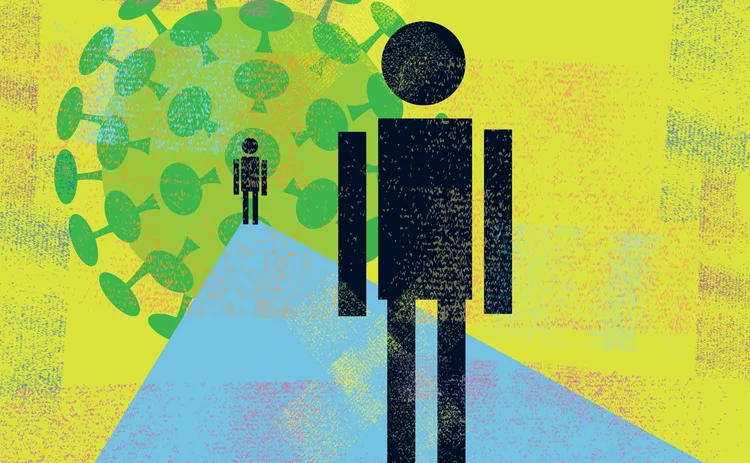
As well as heightening uncertainty and worry on a personal level, the Covid-19 pandemic increased stress levels at work for many people. For those in the energy trading and risk professions, this was particularly pronounced, as people dealt with unprecedented market volatility and even existential threat at some level – all of this while socially distanced, and often working in less than ideal conditions.
In this podcast, Novera Khan, chief risk officer of German energy firm Uniper, discusses mental health in the workplace.
Even before the pandemic, research showed that poor health was the biggest cause of business disruption across industries globally and that absence due to stress, anxiety and depression lasts on average 40% longer and can be more costly than absence due to physical illness or injury. But it’s not just absences that can be costly – stress can lead to an increase in mistakes or a loss of the crucial level-headedness needed when making commercial decisions. A company that hasn’t addressed mental health effectively is more likely to have employees that continue working when they are over-stressed due to stigmas around speaking out about deteriorating mental health.
Khan talks about Uniper’s experience during the lockdown and how the firm replicated as best as possible the collegiate environment of the trading floor. She talks about the particular stresses on energy firms due to volatile prices and discusses the easing of the lockdown, Uniper’s return-to-work plan and the impact the ‘new normal’ may have on some employees’ mental health.
Index
2:05 To what extent should mental health fall within the remit of the CRO?
2:45 Does mental health awareness vary around the globe and is there still a stigma attached to it in the workplace, especially in trading? Has Covid-19 pushed mental health awareness further up the agenda?
5:28 When Uniper first went into lockdown, did people’s mental health become of greater concern to you?
7:45 What sort of stresses did you see your staff under?
10.01 How were you able to check in and monitor whether people were coping?
12:21 Did you feel the technologies you used created the collegiate environment sufficiently?
14:10 Tell me more about your “digital happy hours”.
15:34 What was the impact on stress levels of people the day oil prices went negative?
20:43 Were you able to create a digital trading floor environment where traders and risk officers could discuss this as they would have done in the office?
22:41 As lockdowns ease, what are Uniper’s plans and what mental health issues do you expect to have to address?
26:03 How will you address the emotional impact of returning to offices for some staff? Will working from home remain a greater option than before lockdown?
29:38 Some employees will return to work still dealing with issues that happened during the lockdown. For example, those that lost loved ones may feel their loss wasn’t registered by their company in the way it would have been normally. Have you given any thought to this matter specifically?
34:52 Could artificial intelligence lead to trade surveillance technologies that could flag up changes in behaviour that might indicate people are not coping well with stress, or would this be considered too obtrusive?
More on Risk management
Energy firms revisit CTRM systems as tech advances
Energy executives mull how to tap into the explosion of new technologies entering the risk space, but systems selection must consider future business needs, writes Yefreed Ditta at Value Creed
CRO interview: Brett Humphreys
Brett Humphreys is head of risk management at environmental markets specialist Karbone. He talks to Energy Risk about the challenges of modelling outcomes in unpredictable times and how he’s approaching the risks at the top of his risk register
How geopolitical risk turned into a systemic stress test
Conflict over resources is reshaping markets in a way that goes beyond occasional risk premia
Energy Risk Debates: the influence of risk culture
The panellists examine different risk cultures and discuss the risk manager’s role and influence in creating a risk culture
Energy Risk reaction: Venezuela and oil sanctions
Energy Risk talks to Rob McLeod at Hartree Partners about the energy risk implications of the US’s control of Venezuelan oil
CRO interview: Shawnie McBride
NRG’s chief risk officer Shawnie McBride discusses the challenges of increasingly interconnected risks, fostering a risk culture and her most useful working habits
Increasingly interconnected risks require unified risk management
Operational risk is on the rise according to a Moody's survey, making unified risk management vital, say Sapna Amlani and Stephen Golliker
Energy Risk Europe Leaders’ Network: geopolitical risk
Energy Risk’s European Leaders’ Network had its first meeting in November to discuss the risks posed to energy firms by recent geopolitical developments

